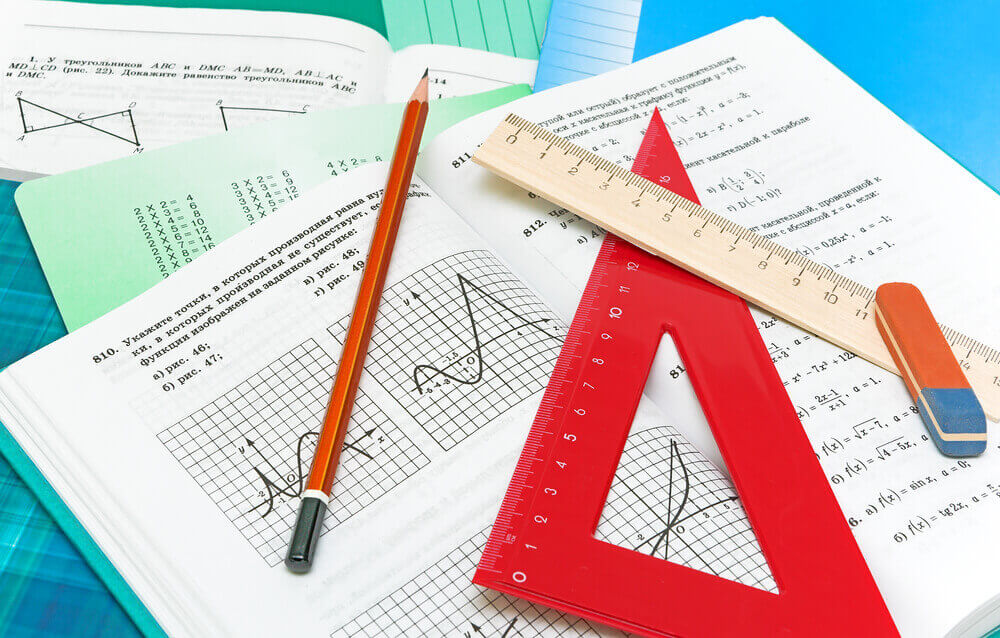Top Tips for Remembering Maths Concepts Better
Published on 25 November 2020 by Edu Aid | For Parents

Top Tips for Remembering Maths Concepts Better
Examinations remain the key gateway to getting a good job and upgrading one’s social status in Singapore. Without scoring well in the national PSLE, O levels and A levels, a student’s future opportunities become severely limited. However, the examination standard across all levels of the Singapore education system has been getting increasingly difficult each year. With the larger content depth and more advanced answering techniques, how can students master the new math syllabus? What are the best tips for more effective studying?
The Wrong Way to Study
Many students know that memory work is important when preparing for any math examination. After all, if one could commit every single concept and formula in the textbook to memory, they would be able to ace their maths exams with no problem. While studying by memorisation can produce good results in exams, most would agree that it is an ineffective method of studying. For one, memory work generally takes a long time for one to internalise all the concepts than if they were to use other studying habits. Secondly, memorization only works for examination questions that are structured according to a standard format. Without fully understanding the contents of the syllabus, a student will be unable to apply their memorised concepts to a real-life application or unconventional questions. Perhaps the most important point is that forced memorization often causes students to lose interest in the subject because they would tend to find it dry and repetitive to internalise all the textbook content.
With that, simply staring at a textbook for long hours is not an effective way to study. Instead, try these pointers and watch how they can spark a newfound interest in math.
Learn by Writing
 Writing is an effective way to internalise important concepts. Instead of printing out, downloading or buying lesson notes, what about getting students to make their own notes? By writing down the key points for each topic, a student is committing it to memory and summarising what they have learned into a condensed, easy-to-refer format. It can be easy to forget something sometime after simply reading it, but writing it down reinforces connections in the brain.
Writing is an effective way to internalise important concepts. Instead of printing out, downloading or buying lesson notes, what about getting students to make their own notes? By writing down the key points for each topic, a student is committing it to memory and summarising what they have learned into a condensed, easy-to-refer format. It can be easy to forget something sometime after simply reading it, but writing it down reinforces connections in the brain.
Even so, note-taking is not just about wholesale copying from a textbook to a writing pad. Writing long sentences can make studying become tedious and monotonous. Try summarising the key concepts instead and write down the important takeaways in concise point form. Students who learn better visually can even make use of diagrams and mind maps to better internalise the concepts. Additionally, it can help some students remember things better if they use coloured markers, post-its, and highlighters to decorate their notes. Most importantly, students should take notes in a format that they find easy to refer to.
The added benefit of making one’s own study notes is that it can serve as an excellent tool for quick and handy revision any time it is needed. A pocket-sized notebook of study notes is a great way to go through important concepts while on the bus or waiting in a queue!
Learn by Teaching
 One of the best ways to learn is by teaching someone else! Even long-time school teachers will find that they are still learning new things about the content they are teaching. A student who teaches others about the concepts they have learned – be it a junior, peer, or even an elder – is constantly refreshing their knowledge by explaining things until the other person understands. Teaching someone requires that the teacher have a firm grasp of the content before attempting to explain it to another person, which naturally causes a student-teacher to reflect on their own knowledge and organise their thoughts in a better way. A teacher will also have to paraphrase content and dissect it into bite-size pieces for the relevant audience, further ensuring that the teacher becomes more proficient with the content instead of simply memorising and regurgitating it.
One of the best ways to learn is by teaching someone else! Even long-time school teachers will find that they are still learning new things about the content they are teaching. A student who teaches others about the concepts they have learned – be it a junior, peer, or even an elder – is constantly refreshing their knowledge by explaining things until the other person understands. Teaching someone requires that the teacher have a firm grasp of the content before attempting to explain it to another person, which naturally causes a student-teacher to reflect on their own knowledge and organise their thoughts in a better way. A teacher will also have to paraphrase content and dissect it into bite-size pieces for the relevant audience, further ensuring that the teacher becomes more proficient with the content instead of simply memorising and regurgitating it.
Even if a student does not have anyone to physically teach, they can still harness the power of this revision method by creating blog posts or even videos for others to watch and learn. For example, filming a short tutorial on “how to solve integration problems” can give the student the opportunity to explain their methods and reinforce their understanding in the process.
Seek Help with Maths Tuition
Sometimes, studying on one’s own can only go so far. It is normal to look for outside help if a student is really struggling with their maths exams, or even if they just wish to have a mentor to provide some advice. Since the job of a tutor is to provide help to students, you can rest assured that a tutor is a great asset to have if aceing the exams is your utmost priority. Tutors who have had recent experience teaching students of a similar maths level will be especially familiar with the latest syllabus and exam answering techniques. Most of the time, tutors are also equipped with convenient mnemonics and shortcuts to help students learn the content more efficiently.
Fortunately, it is easy to find A level maths tuition and A maths tuition in Singapore. If you are considering going by the tuition route, check out our advice on how to choose the perfect tutor!





